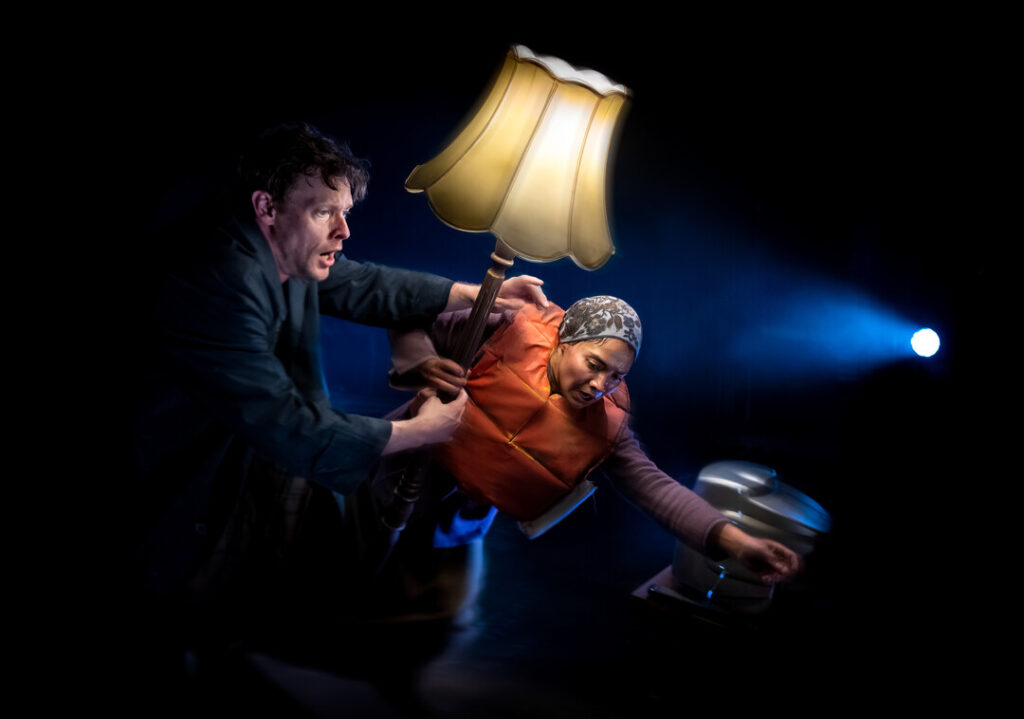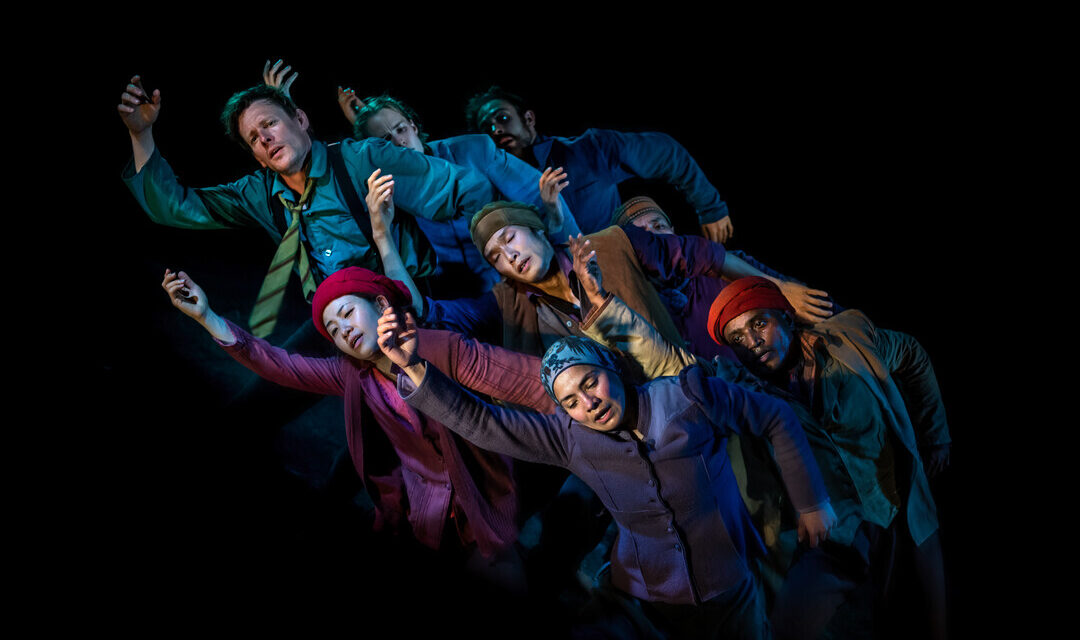
4 – 5 October
Like their namesake, the Ipswich based theatre company Gecko is characterised by its supple, surprising, darting movements. The performances are elegant, dance like, fascinating to watch, in near constant motion, the moments of stillness more effective for their rarity. There is little speech and what there is, in multiple languages, is not always audible. This is intentional. Kin is about migration, the unheard masses crossing continents with their battered suitcases.
A recorded soundscape by Mark Melville conjures the threatening forces of the natural world which accompany the characters’ emotional and physical journeys. The music composed by David Price is strikingly effective. Folk melodies are relayed through voice, strings, and woodwind, as well as lesser-known instruments such as the Armenian ‘Duduk’ and Ethiopian ‘Krar’.
This last snippet of information was gleaned from the online programme and accompanying notes. In them the artistic director Amit Lahav explains that the show was inspired by the migratory journey of his grandmother, fleeing persecution in Yemen in 1932. Further explanation, intended primarily for deaf and disabled audience members, is extremely helpful in answering questions about the show’s aims and origins.
Nine actors represent the migrants and border guards, in a series of dreamlike sequences involving two families. It is hinted, but never stated, that they are from the Middle East and Asia and are fleeing persecution. There are moments of anguish at separation, moments of joy in reunion. Individuals are interrogated, humiliated, incarcerated. A disabled young man is shown to need special care. Violence is suggested rather than depicted. Some characters get through borders, others don’t. All this is skilfully intimated through sound and movement. But where there is no central character to care about, no single narrative to hold onto, it is hard for an audience to feel totally engaged.
There are obvious references to racial iniquity, as when a striking blonde couple pass through the border gates with ease while those behind them are excluded. However, it’s difficult to see the extent to which Gecko’s undeniable stylistic brilliance adds to our understanding of the human causes and consequences of such huge concepts as racism, nationalism, bureaucracy, cruelty, and exclusion. Abstractions don’t make good theatre.
One of the most effective scenes employs puppetry to recreate the memories of three Holocaust survivors. Their actual words in English and Hebrew are used and, for once, their speech is audible and distinguishable. The way the puppets’ heads float away from their skeletal bodies and arms is an extraordinary visual metaphor for dehumanisation of a people, their psychological and physical dismemberment, one of the most heartrending moments in the show, and a reminder of what good visual theatre can do.
So, there is much that is excellent in Kin. But there is also much that is disappointing. It is tempting to feel that Gecko might have achieved more by attempting less, or at least by employing a sharper and narrower focus. For all the burning contemporary relevance of their themes, we come away admiring the skills and creativity of the performers and designers, rather than engaging emotionally or intellectually with the huge issues they ask us to consider.
★★★☆☆ Ros Carne 5 October 2023
photographers credit @ Malachy Luckie


